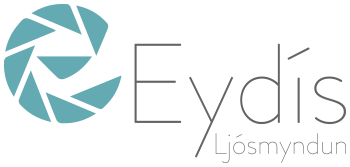Because they be more skilled they much more active in the main steps of the specific neighborhood
Second, there may times when the community of practice was poor or exhibits power relationships that severely restrict entry and engagement
They push from legitimate peripheral engagement to into a€?full participation (Lave and Wenger 1991: 37). Learning was, therefore, not considered the acquisition of real information by individuals a whole lot as a procedure of personal engagement. The character on the condition influences considerably from the procedure.
Learners certainly take part in communities of practitioners and… the mastery of real information and skill requires beginners to move toward complete participation during the socio-cultural tactics of a residential district. a€?Legitimate peripheral participationa€? supplies a way to discuss the connections between beginners and old-timers, and about recreation, identities, artefacts, and communities of real information and exercise. Your purposes to master are involved and the concept of studying are set up through the means of getting the full associate in a socio-cultural practice. This personal processes, contains, certainly it subsumes, the educational of experienced skill. (Lave and Wenger 1991: 29)
Contained in this there clearly was a problem with personality, with understanding how to talk, perform and improvise in many ways that produce good sense in the community. Furthermore, plus comparison with finding out as internalization, a€?learning as increasing involvement in communities of practice involves the whole person acting in the arena’ (Lave and Wenger 1991: 49). The main focus is found on the ways wherein learning try a€?an evolving, continuously revived collection of interaction’ (ibid.: 50). Quite simply, this is a relational view of anyone and reading (understand conversation of selfhood).
Installed discovering
In this way of drawing near to discovering is something more than simply a€?learning by doing’ or experiential discovering. As Mark Tennant (1997: 73) enjoys stated, Jean Lave’s and Etienne Wenger’s notion of situatedness entails everyone becoming full individuals in the field as well as in creating meaning. a€?For newcomers’, Jean Lave and Etienne Wenger (1991: 108-9) remark, a€?the factor is certainly not to master from chat as a substitute for legitimate peripheral involvement; it really is to learn to talk as a vital to legitimate peripheral participation’. This orientation contains the definite advantageous asset of drawing awareness of the necessity to read skills and studying in context. But installed finding out will depend on two statements:
- It can make no feeling to speak of real information that will be decontextualized, conceptual or basic.
- New information and learning are precisely developed to be based out of communities of application (Tennant 1997: 77).
Concerns can be brought up about these two boasts. They ple, that training can occur definitely seemingly not related to a specific framework or life condition.
Discover a risk, as Jean Lave and Etienne Wenger know, of romanticizing forums of practice. However, there is a propensity within their earlier services of dropping into this pitfall. a€?within desire to debunk screening, official studies and conventional accreditation, they just do not evaluate exactly how her omission [of a range of inquiries and dilemmas] has an effect on power relations, accessibility, general public insights and general public responsibility’ (Tennant 1997: 79). Their attention for the forms of learning involved communities of application percentage some traditional component with Ivan Illich’s advocacy of finding out webs and casual studies. However, where Jean Lave and Etienne Wenger reached the location through an exploration of neighborhood experiences and advice, Ivan Illich begun with a macro-analysis on the debilitating effects of organizations such education. In both cases the sweep of these arguments resulted in an under-appreciation for the functions of more conventional structures and organizations for learning. But this was clear because of the scale associated with issues and complications around finding out  within professionalized and bureaucratic institutions for example education their particular particular analyses expose.
within professionalized and bureaucratic institutions for example education their particular particular analyses expose.
